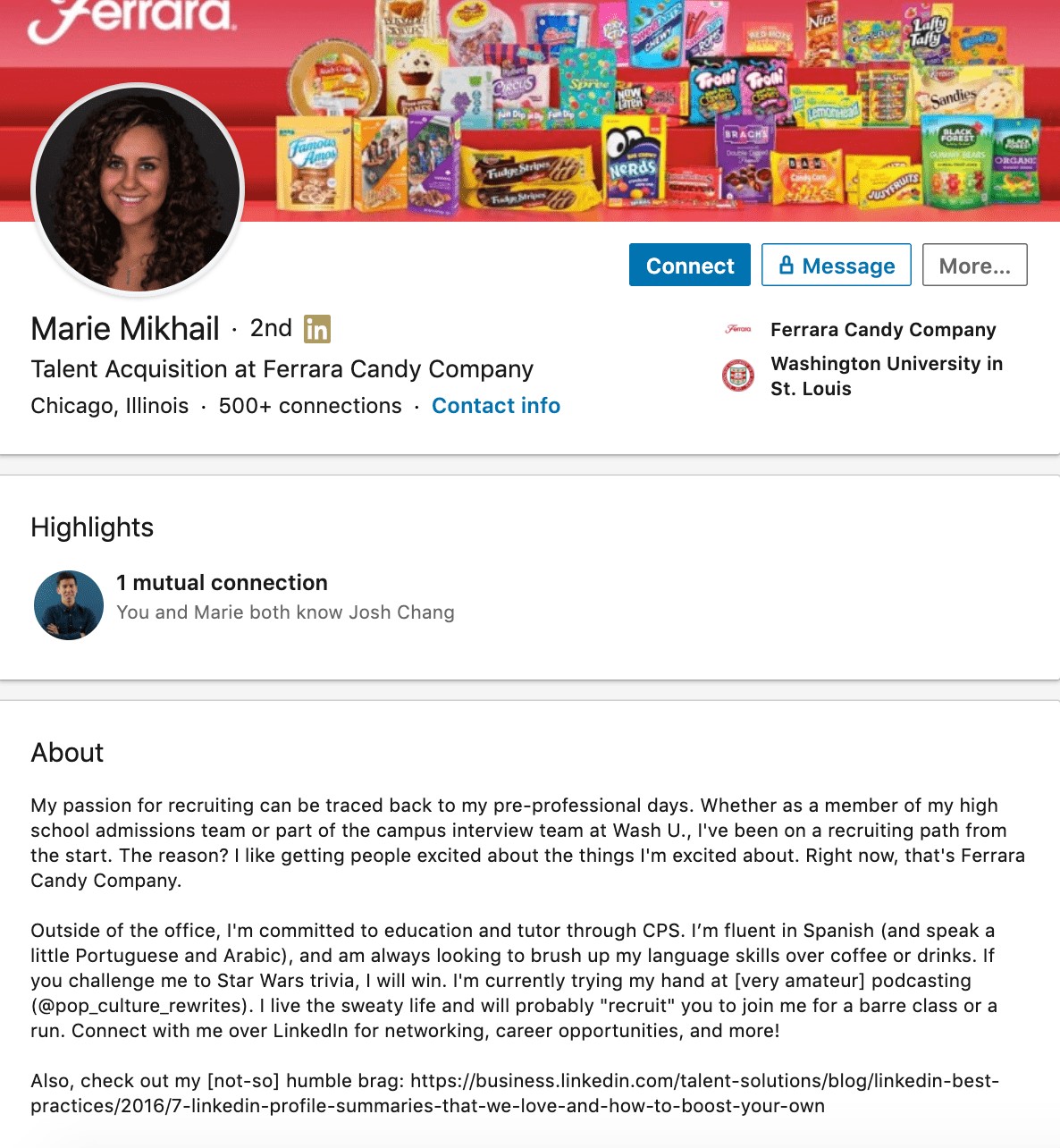How to Write a Bio that Showcases Your Personality and Brand
When it comes to writing a bio, it’s not just about listing your credentials and experience. A great bio should also showcase your personality and brand, giving readers a sense of who you are and what you’re about. One way to do this is to use storytelling techniques, such as anecdotes and vivid language, to bring your bio to life. For example, instead of simply stating your job title and responsibilities, you could describe a particularly challenging project you worked on and how you overcame obstacles to achieve success.
Humor can also be an effective way to inject personality into your bio. If you’re able to make readers laugh or smile, you’ll be more likely to make a lasting impression and build a connection with them. However, be careful not to overdo it – you want to come across as professional and competent, not goofy or unprofessional.
Another key element of a bio that showcases your personality and brand is language that reflects your tone and voice. If you’re a fun and quirky person, your bio should reflect that. On the other hand, if you’re more serious and professional, your bio should convey that. The key is to be authentic and consistent in your language and tone, so that readers get a sense of who you are and what you’re about.
Ultimately, the goal of a bio is to tell a story that resonates with readers and helps them understand your value and unique perspective. By showcasing your personality and brand, you can create a bio that truly stands out and helps you achieve your goals. Whether you’re looking to establish yourself as an expert in your field, build your personal brand, or simply make a good impression, a well-written bio is essential.
The Power of Keywords: Optimizing Your Bio for Search Engines
In today’s digital age, having a strong online presence is crucial for professionals and businesses alike. One key aspect of this is optimizing your bio for search engines, which can help increase your visibility and reach a wider audience. To do this, it’s essential to incorporate relevant keywords into your bio, which can help search engines understand the content and context of your bio.
So, how do you go about conducting keyword research and integrating keywords into your bio? The first step is to identify the keywords and phrases that are most relevant to your industry, profession, or brand. You can use tools such as Google Keyword Planner or Ahrefs to help you brainstorm and refine your list of keywords. Once you have your list, you can start incorporating them into your bio in a natural and organic way.
It’s also important to remember that keyword optimization is not just about stuffing your bio with as many keywords as possible. This can come across as spammy and may actually harm your search engine rankings. Instead, focus on using keywords in a way that feels natural and authentic, and that adds value to your bio.
For example, if you’re a marketing professional, you might include keywords such as “digital marketing,” “social media marketing,” and “content marketing” in your bio. However, you should also make sure to include other relevant information, such as your experience, skills, and achievements, to provide context and depth to your bio.
By incorporating relevant keywords into your bio, you can increase your visibility and reach a wider audience. This can be especially important for professionals and businesses who are looking to establish themselves as thought leaders in their industry. By optimizing your bio for search engines, you can help ensure that your message is seen by the people who matter most.
Examples of Effective Bios: What Works and What Doesn’t
When it comes to writing a bio, it can be helpful to look at examples of effective bios from various industries and professions. By analyzing what makes these bios successful, you can gain insights into how to craft a compelling bio that showcases your personality and brand.
For example, a well-written bio for a marketing professional might include a brief summary of their experience, skills, and achievements, as well as a personal statement that highlights their unique approach and perspective. A good example of a bio that does this is the bio of a well-known marketing expert, which includes a concise summary of their experience and skills, as well as a personal statement that showcases their passion for marketing and their commitment to helping others.
On the other hand, a bio that is too long, too self-promotional, or too focused on jargon and technical terms is unlikely to be effective. For example, a bio that simply lists a person’s job titles and responsibilities without providing any context or personal insight is unlikely to engage readers or help them understand the person’s value and unique perspective.
Another key element of an effective bio is the use of storytelling techniques. By using anecdotes, metaphors, and other literary devices, you can make your bio more engaging and memorable, and help readers connect with you on a deeper level. For example, a bio that tells the story of how you overcame obstacles to achieve success can be much more compelling than a bio that simply lists your achievements.
Ultimately, the key to writing an effective bio is to showcase your personality and brand in a way that is authentic, engaging, and relevant to your audience. By looking at examples of effective bios and incorporating storytelling techniques, you can create a bio that truly represents you and helps you achieve your goals.
Common Bio Mistakes to Avoid: Pitfalls and Best Practices
When it comes to writing a bio, there are several common mistakes that people make that can undermine the effectiveness of their bio. One of the most common mistakes is using jargon or technical terms that may be unfamiliar to readers. This can make the bio seem inaccessible or even pretentious, which can be a turn-off for potential readers.
Another common mistake is being too self-promotional. While it’s okay to highlight your achievements and qualifications, a bio that comes across as overly boastful or arrogant can be off-putting. Instead, focus on showcasing your skills and experience in a way that is humble and authentic.
Another mistake to avoid is neglecting to include relevant information. A bio should provide readers with a clear understanding of who you are, what you do, and what you can offer. Make sure to include relevant details such as your job title, industry, and areas of expertise.
Finally, a bio should be concise and to the point. Avoid using overly complex language or including too much information. Keep your bio focused on the most important details and avoid using unnecessary words or phrases.
By avoiding these common mistakes, you can create a bio that is effective and engaging. Remember to keep your bio concise, focused, and authentic, and to avoid using jargon or overly technical terms. With a little practice and patience, you can create a bio that truly represents you and helps you achieve your goals.
For example, a good bio might read: “As a marketing professional with over 10 years of experience, I have a proven track record of success in developing and implementing effective marketing campaigns. My expertise includes social media marketing, content marketing, and email marketing. I am passionate about helping businesses grow and succeed, and I am committed to providing exceptional service to my clients.”
This bio is effective because it is concise, focused, and authentic. It provides readers with a clear understanding of who the person is, what they do, and what they can offer. It also showcases the person’s skills and experience in a way that is humble and authentic.
Tailoring Your Bio for Different Platforms and Audiences
When it comes to writing a bio, it’s essential to consider the platform and audience you’re writing for. Different platforms, such as LinkedIn, Twitter, or a personal website, require different approaches to writing a bio. For example, a LinkedIn bio should be more formal and professional, while a Twitter bio can be shorter and more casual.
Similarly, the tone and content of your bio should be tailored to your audience. If you’re writing a bio for a professional networking site, you’ll want to focus on your work experience and qualifications. On the other hand, if you’re writing a bio for a personal website or blog, you may want to include more personal details and anecdotes.
One of the most important things to consider when tailoring your bio for different platforms and audiences is the length and tone of your bio. For example, a Twitter bio should be short and concise, while a LinkedIn bio can be longer and more detailed. Similarly, a bio for a personal website or blog can be more casual and conversational, while a bio for a professional networking site should be more formal and professional.
Another key consideration is the use of keywords and phrases. Different platforms and audiences may require different keywords and phrases to be included in your bio. For example, if you’re writing a bio for a professional networking site, you may want to include keywords related to your industry or profession. On the other hand, if you’re writing a bio for a personal website or blog, you may want to include keywords related to your hobbies or interests.
Ultimately, the key to writing a great bio is to tailor it to your platform and audience. By considering the length, tone, and content of your bio, as well as the use of keywords and phrases, you can create a bio that effectively communicates your message and resonates with your audience.
For example, a good bio for a LinkedIn profile might read: “As a marketing professional with over 10 years of experience, I have a proven track record of success in developing and implementing effective marketing campaigns. My expertise includes social media marketing, content marketing, and email marketing. I am passionate about helping businesses grow and succeed, and I am committed to providing exceptional service to my clients.”
On the other hand, a good bio for a Twitter profile might read: “Marketing pro with a passion for social media and content marketing. Helping businesses grow and succeed one tweet at a time.”
Using Your Bio to Tell a Story and Build Connections
A well-written bio is more than just a list of credentials and accomplishments. It’s an opportunity to tell a story and build connections with your readers. By using storytelling techniques, you can create a bio that resonates with others and helps establish a personal connection.
One way to tell a story in your bio is to use anecdotes and examples that illustrate your skills and experience. For example, instead of simply stating that you’re a skilled marketer, you could describe a successful marketing campaign you led and the results you achieved. This helps to bring your bio to life and makes it more relatable to your readers.
Another way to build connections with your readers is to show your personality and passion in your bio. This can be done by using language that reflects your tone and voice, as well as by highlighting your interests and hobbies outside of work. By doing so, you can create a bio that feels more authentic and personal, and that helps to establish a connection with your readers.
Using your bio to tell a story and build connections is especially important in today’s digital age, where people are increasingly looking for ways to connect with others online. By creating a bio that resonates with others and helps establish a personal connection, you can build trust and credibility with your readers, and establish yourself as a thought leader in your industry.
For example, a good bio that tells a story and builds connections might read: “As a marketer with a passion for storytelling, I’ve always been drawn to the creative side of business. With over 10 years of experience in the industry, I’ve had the opportunity to work with some amazing clients and help them tell their stories in a way that resonates with their audiences. When I’m not working, you can find me hiking in the mountains or trying out a new restaurant in town.”
This bio tells a story and builds connections by using anecdotes and examples to illustrate the person’s skills and experience, as well as by showing their personality and passion. By doing so, it creates a bio that feels more authentic and personal, and that helps to establish a connection with the reader.
Final Tips for Writing a Bio that Truly Represents You
Writing a bio that truly represents you is a process that requires thought, creativity, and experimentation. It’s essential to remember that your bio is a living document that should evolve with your career and personal brand. Here are some final tips to help you write a bio that accurately reflects your professional brand and personality:
First, be authentic and honest in your bio. Your readers will appreciate your transparency and vulnerability, and it will help you build trust and credibility with them. Don’t be afraid to show your personality and passion in your bio, as it will help you stand out from the crowd and make your bio more relatable and memorable.
Second, experiment with different formats and styles until you find one that works for you. Your bio doesn’t have to be a traditional, formal document. You can use humor, anecdotes, and storytelling techniques to make it more engaging and entertaining.
Third, continually refine and update your bio to ensure it remains effective. Your bio is a living document that should evolve with your career and personal brand. Regularly review and update your bio to ensure it accurately reflects your current skills, experience, and achievements.
Finally, don’t be afraid to seek feedback and guidance from others. Ask colleagues, friends, and mentors to review your bio and provide feedback on how you can improve it. Use their suggestions to refine and update your bio, and don’t be afraid to try new things and take risks.
By following these tips, you can write a bio that truly represents you and helps you achieve your career goals. Remember to be authentic, experiment with different formats and styles, continually refine and update your bio, and seek feedback and guidance from others. With a little practice and patience, you can create a bio that showcases your personality and brand, and helps you stand out in a crowded and competitive job market.
Final Tips for Writing a Bio that Truly Represents You
Writing a bio that truly represents you is a process that requires thought, creativity, and experimentation. It’s essential to remember that your bio is a living document that should evolve with your career and personal brand. Here are some final tips to help you write a bio that accurately reflects your professional brand and personality:
Be authentic and honest in your bio. Your readers will appreciate your transparency and vulnerability, and it will help you build trust and credibility with them. Don’t be afraid to show your personality and passion in your bio, as it will help you stand out from the crowd and make your bio more relatable and memorable.
Experiment with different formats and styles until you find one that works for you. Your bio doesn’t have to be a traditional, formal document. You can use humor, anecdotes, and storytelling techniques to make it more engaging and entertaining.
Continually refine and update your bio to ensure it remains effective. Your bio is a living document that should evolve with your career and personal brand. Regularly review and update your bio to ensure it accurately reflects your current skills, experience, and achievements.
Don’t be afraid to seek feedback and guidance from others. Ask colleagues, friends, and mentors to review your bio and provide feedback on how you can improve it. Use their suggestions to refine and update your bio, and don’t be afraid to try new things and take risks.
By following these tips, you can write a bio that truly represents you and helps you achieve your career goals. Remember to be authentic, experiment with different formats and styles, continually refine and update your bio, and seek feedback and guidance from others. With a little practice and patience, you can create a bio that showcases your personality and brand, and helps you stand out in a crowded and competitive job market.
For example, a good bio might read: “As a marketing professional with over 10 years of experience, I’ve developed a passion for helping businesses grow and succeed. With a background in digital marketing and a proven track record of success, I’m confident in my ability to drive results and exceed expectations. When I’m not working, you can find me hiking in the mountains or trying out a new restaurant in town.”
This bio is effective because it showcases the person’s personality and brand, while also highlighting their skills and experience. It’s authentic, engaging, and memorable, and it provides a clear sense of who the person is and what they can offer.




.jpg?width=1838&height=902&name=miss-604%20(1).jpg)
